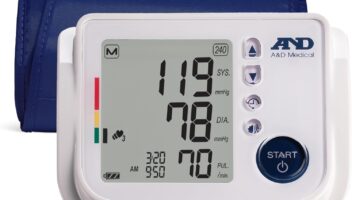Understanding Depression Diagnosis and Finding Hope in Treatment
Navigating through life can sometimes feel heavy and overwhelming. If you’ve ever experienced a persistent feeling of sadness, a lack of interest in activities you once loved, or just an overall sense of hopelessness, you’re not alone. Many people find themselves questioning if they are experiencing depression, yet searching for answers can be a daunting task. Let’s delve into the world of depression diagnosis together, exploring not only what it entails but also the hope that comes through treatment.
Recognizing the Signs of Depression
Depression isn’t just a fleeting feeling of sadness; it can be a complex, multifaceted mental health condition. Here are some common signs that may indicate depression:
- Persistent sadness or low mood
- Loss of interest or pleasure in activities
- Changes in sleep patterns (insomnia or hypersomnia)
- Fatigue or loss of energy
- Feelings of worthlessness or excessive guilt
- Difficulty concentrating or making decisions
- Physical symptoms, such as headaches or digestive issues
It’s important to remember that experiencing one or two of these symptoms doesn’t necessarily mean you are depressed. However, if you identify with a combination of them over an extended period – often two weeks or more – seeking a professional evaluation is a wise step.
The Diagnosis Process
Getting diagnosed with depression typically involves a comprehensive evaluation by a mental health professional. This could be a psychologist, psychiatrist, or licensed therapist. During this process, you might expect:
- Personal Interviews: The clinician will ask about your mood, behavior, and personal and family history related to mental health.
- Psychological Questionnaires: Various standardized questionnaires can help gauge the severity of your symptoms.
- Physical Exam: Sometimes, a doctor might conduct a physical examination to rule out any underlying medical conditions contributing to your symptoms.
Many people find this process daunting, and it can sometimes be uncomfortable reliving difficult moments. I know, because I’ve been there. When I first sought help, I was scared of what I might uncover. Yet, through my journey of diagnosis, I found that ultimately, confronting my feelings and fears led to a brighter, more hopeful perspective.
Finding Hope through Treatment
Once diagnosed, the next step is understanding your treatment options. Fortunately, depression is highly treatable. Many people experience relief from their symptoms through combination therapy, medication, or lifestyle changes. Here’s how:
- Therapy: Engaging in talk therapy with a qualified mental health professional can offer tools to understand and manage your emotions effectively. Cognitive Behavioral Therapy (CBT) has shown significant promise in treating depression.
- Medications: Antidepressants can help balance chemicals in the brain that affect mood. However, it’s essential to work closely with a medical professional to find the right fit for you.
- Lifestyle Changes: Regular exercise, a balanced diet, and good sleep habits can greatly improve overall mental health.
One option that has become increasingly popular in recent years is online therapy. The beauty of online therapy is that you can receive professional help from the comfort of your own home. No waiting rooms, no travel time – just you and your therapist connecting via video or chat. This accessibility is crucial for many individuals who may find in-person visits intimidating or inconvenient.
If you’re considering this option, you can explore more about online therapy here. Imagine speaking with someone who understands your struggles and can guide you toward healing while you’re curled up on your couch with a warm cup of tea!
Embracing Support Networks
Social support is a powerful component in the healing process. Sharing your experiences with trusted friends or family can create a safety net, showing you that you are not alone. Here are some ways to foster support:
- Join a Support Group: Groups offer a space to connect with people experiencing similar challenges.
- Communicate: Don’t hesitate to share your feelings with loved ones; even a simple “I’m having a tough time” can open pathways for support.
- Educate Others: If you feel comfortable, educate those around you about depression. It may foster empathy and understanding.
When I confided in a close friend about my struggles, I felt a sudden weight lift off my shoulders. Her willingness to listen and simply be there for me made all the difference.
Moving Forward with Hope
Living with depression doesn’t have to mean staying in that place forever. There’s resilience in acknowledging your feelings and even more strength in seeking help. Remember that depression is not a personal failure; it’s a medical condition, just like any other health issue you might face.
Every small step you take toward understanding and battling your feelings is a great stride forward. If you or someone you love is battling depression, please consider reaching out for professional help. Understanding what you’re going through is the first step in finding solutions and healing.
If you feel ready to take that step toward healing, explore online therapy options today by clicking here. You are deserving of a life filled with joy and fulfillment, and there are people out there ready to help you find your way.
In this journey of discovering ourselves, let’s embrace authenticity, understanding, and healing. We don’t need to face our battles alone. There is hope, and together, we can illuminate the path to brighter days. 🌈
Disclosure:
Hospitals.net is a participant in the Amazon Services LLC Associates Program, an affiliate advertising program designed to provide a means for sites to earn advertising fees by advertising and linking to Amazon.com, .ca, .co.uk, etc.
AI Disclaimer:
Hospitals.net uses artificial intelligence (AI) tools to assist in gathering and summarizing product information, including reviews and other relevant data for Amazon products and services. While we strive to ensure the accuracy of the information provided, AI-generated content may not always reflect the most up-to-date or accurate details. The information on our site should not be considered professional advice, and users are encouraged to verify any product details directly with Amazon or other official sources before making a purchase.
We do not guarantee the completeness or accuracy of the AI-generated content and are not liable for any discrepancies or errors. Any reliance on the information provided is at the user’s own risk. By using this site, you acknowledge that product availability, pricing, and other details may change over time, and Hospitals.net is not responsible for these changes.
Health Disclaimer:
The health products and information provided on Hospitals.net are for informational purposes only and are not intended to substitute professional medical advice, diagnosis, or treatment. Always consult a qualified healthcare provider or medical professional before using any health products or following any advice you find on this site. The content on Hospitals.net, including product recommendations and reviews, is not a substitute for individualized care from a healthcare provider.
We make no warranties or representations regarding the effectiveness, quality, or safety of the products listed on our site. Any use of these products is solely at your own risk. Hospitals.net is not liable for any harm, injury, or adverse effects that may result from the use or misuse of the health products or information provided.
Please read all product labels, warnings, and directions provided by the manufacturer before using any product. If you have any questions about a product or its suitability for your condition, we recommend contacting the manufacturer directly or consulting a healthcare professional.
If you have any concerns regarding the accuracy of the information on this site, please contact us for further clarification.



